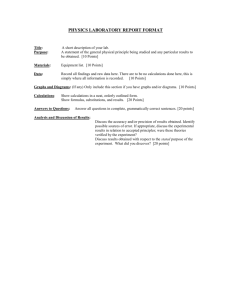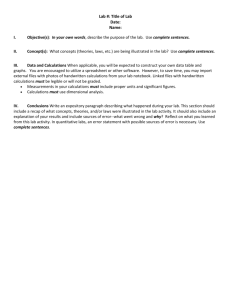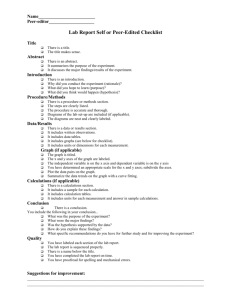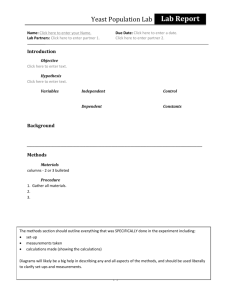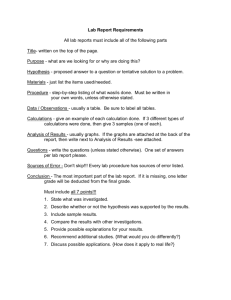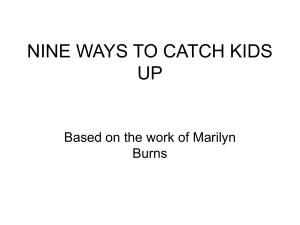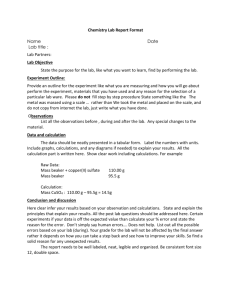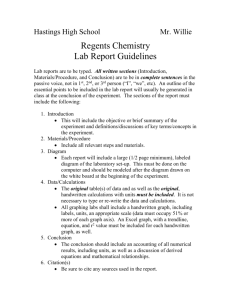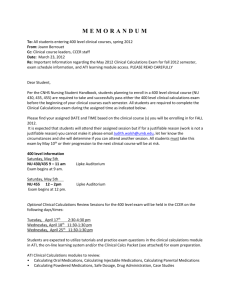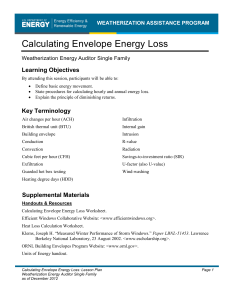here - Markethill High School
advertisement
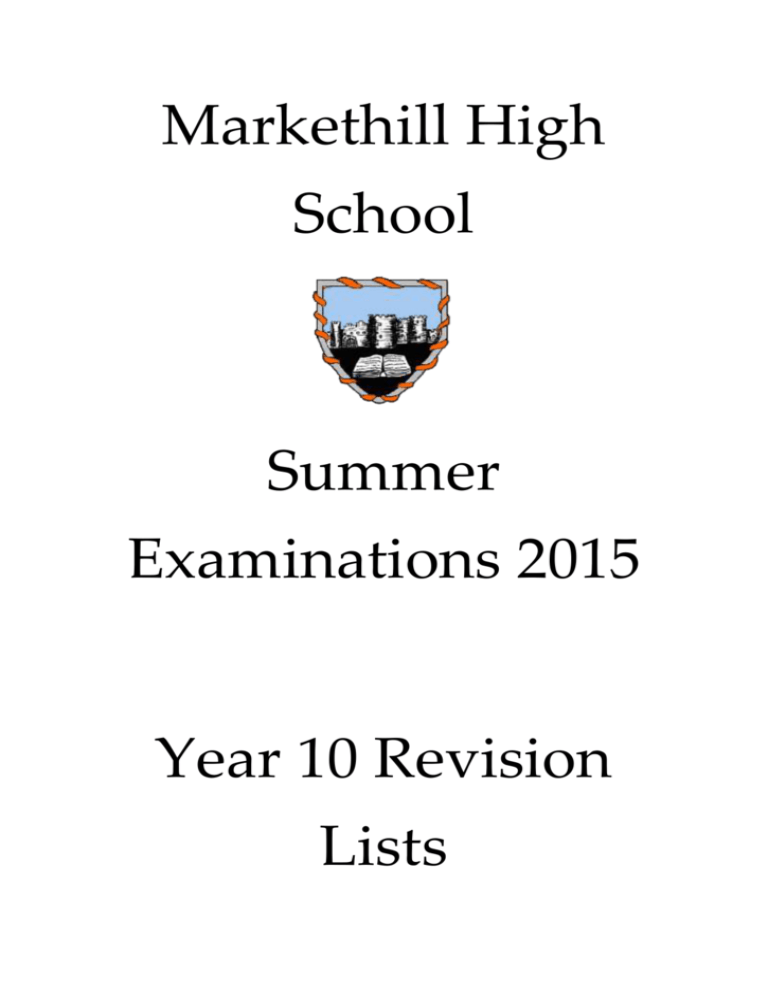
Markethill High School Summer Examinations 2015 Year 10 Revision Lists ART and DESIGN Observational work on various selected foods, sweets and wrappers in pencil / paint / pen and wash, use of viewfinders, design work. A Warhol and various pop artists DRAMA Exams will commence the week beginning Monday 18th May for 10EY/the week beginning Monday 25th May for 10ST/10HM/10GP/10RP Each pupil will be given their exam script the week beginning April 25th Script: ‘To bee or not to bee’ by Susan Kim Exam expectations – strong line knowledge, enthusiastic performance skills (fe/v/g/m), costume and props effort as well as a self evaluation task ENGLISH Non-Literary Comprehension: Purpose and audience. Using evidence from the text to support answers. Choice of words / phrases /language techniques for effect. Forest grid used in ‘Persuasive Writing Unit’. Layout of leaflet: headings/subheadings/pictures/ use of colour. Writing: Plan and write on title. Consider audience/purpose and show awareness of audience. Use of words/phrases and language techniques for effect. (Forest grid used in ‘Persuasive Writing Unit’). Writing in an engaging and interesting manner. General Basic punctuation: capital letters / full stops / exclamation marks / question marks / correct use of speech marks Paragraphs. Neat handwriting and presentation. FRENCH Revision list for 10ST 10EY 10HM 10 GP Travel plans Information about travel/ buying a ticket Clothes Appearance Parts of body/ what hurts or is wrong Information about a French town eg Nîmes Discuss going out Invitations Perfect tense verbs with avoir and être Mettre with clothing Adjectives and agreement Comparatives Preparation for writing test Describe yourself Describe your family Talk about your leisure Talk about what you did last weekend Talk about your future plans for holidays GEOGRAPHY Development What is development? Indicators of development. Trade – MEDCs and LEDCs. TNCs – reasons for location of factories in LEDCs, advantages and disadvantages. What is globalisation? Aid. What are the different types of aid? What is appropriate aid? Inappropriate aid? Urbanisation Why do people move to urban areas? Where are the world’s largest cities? Describe the location. Describe and explain the growth, location and problems in a Shanty Towns e.g. Kibera (Nairobi, Kenya) Rocks and Coastal Landscapes Igneous, sedimentary and metamorphic rock: examples and their formation. Weathering and erosion of rock. Waves and the factors that influence them. Destructive waves at the coast. Processes of erosion at the coast. Long-shore drift. Headlands and bays- how do they form? Features of erosion: wave cut notch and platform and cave, arch, stack and stump. Formation of a spit. Coastal Management strategies: groynes and beach nourishment. HISTORY 1. Why do we commemorate…? “Holocaust Memorial Day 27th January” 2. How and why did the Nazis persecute the Jews? And Holocaust 70th Anniversary Booklet 3. Why was Ireland partitioned in 1920-1921? Long term causes 1912-1916 4. Why was Ireland partitioned in 1920-1921? Short term causes 1916-1921 5. What were the consequences of the Partition of Ireland? How significant a part did Partition play in the Troubles in Northern Ireland after 1969? HOME ECONOMICS Consumerism– definition, who influences our purchases, factors influencing what we buy, consumer rights, how to make an effective complaint, GCCNI, CAB, advantages and disadvantages to shopping online Money Matters– mortgage, rent, budgeting, methods of payment, poor money management, tips for good money management money tips for shopping for food Convenience Foods– definition, groups, examples of each group, advantage and disadvantages, who finds them useful, why people purchase them A-Z of Adolescence All spellings on the front of all of the above booklets. MATHEMATICS 10ST/EY/HM/GP Processing data – calculations involving mean, median, mode and range Presenting data including scatter diagrams/correlation and pie charts General graph work and interpretation of data from a table Percentage calculations including financial calculations such as VAT Angle calculations including parallel lines, triangles and quadrilaterals Algebra – simplifying expressions, expanding brackets, factorising, solving equations, substitution and forming algebraic expressions Scatter diagrams/correlation Circles –parts of a circle, calculating circumference and area Perimeter and area - calculations involving composite shapes Ratio – simplifying ratios and sharing in a given ratio Transformations – reflections, rotations, translations and enlargements Probability – calculating probability, combined outcomes and estimating probabilities Accuracy – rounding to a given number of decimal places or significant figures and estimating answers Stem and Leaf diagrams – drawing and interpreting Calculating mean from a table Estimating mean of grouped data Formulae – including substitution into a formula and rearranging a formula 10RP Calculations with 4 operations + − × ÷ Mean, median, mode and range Bar charts Stem and leaf diagrams Line graphs Types of angles Measuring angles Angle sums Rounding numbers to the nearest whole, 10, 100 and 1000 Properties of triangles Properties of quadrilaterals Coordinates Perimeter of 2D shapes Area of squares, rectangles and triangles Volume of cubes and cuboids Calculating a fraction of an amount Calculating percentages The calendar 12/24 hour clock Time calculations Solving equations Simplifying expressions Substitution Solving equations Expanding brackets MUSIC Your summer exam will involve some “Ear Tests” – namely, listening exercises where you may hear: Instruments of the Orchestra played for you to identify Sequences of four or five notes, played one after the other, from which you will have to select the highest or the lowest Songs during which you might have to list the instruments you can hear playing, or the number of times a certain word or phrase is sung Spot the Difference - in which you will hear two recordings – two contrasting versions – of the same song, and have to discuss both the similarities and the differences that you hear Music From America – the composers and pieces that you listened to Music Technology – the various pieces of technological equipment used in music nowadays, such as the Sampler, the Microphone and so on The Recording Studio and the Music Industry – the items of equipment used in a studio, what each item is for, and how the Music Industry works and supports itself; remember Careers in Music Wolfgang Amadeus Mozart – the life of Mozart and the film, ‘Amadeus’; remember important events that occurred, and the names of important characters Musical Forms And Styles – be prepared to have to recognise any of these in the exam – such as Ballads, Blues, House Music, Reggae, etc.; also revise the Structures, page 68 R.E. Creation, Prejudice and Discrimination, Islam. SCIENCE Biology – The Circulatory System The Respiratory System Plants & Photosynthesis Chemistry – Materials Chemical Reactions The Periodic Table The Environment Physics - Earth & Space Heating & Cooling Electricity & Magnetism In addition to these topics there will also be questions for which you cannot revise e.g. Drawing & interpreting line graphs Bar charts Tables Fair testing Comprehensions Also make sure you can spell and understand the meaning of the key words. SPANISH Helping at home Daily Routine Reflexive verbs What you do at the weekend Ir a + inf. (simple future) Places in town Asking and giving directions Ordering food and drink in a café The preterite tense Holidays – where you went, where you stayed, how you travelled, what you did Higher numbers Pupils also need to know the vocabulary from Year 9 and Year 10 Term 1. TECHNOLOGY and DESIGN Environmental pollution Types of motion Types of Cam and Cam followers Electronic symbols Types of materials and tools used in project work
